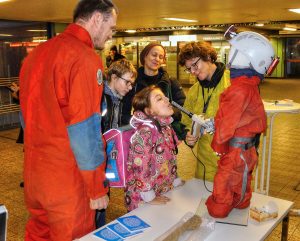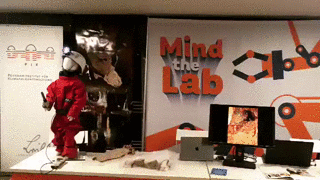Beth Fox, Sebastian Breitenbach, Ola Kwiecien, and Jessica Oster are convening the session CL1.22 Novel and quantitative methods for continental palaeoenvironmental reconstruction in the Climate, Past, Present, Future group at the EGU General Assembly (7-12 April 2019).
We aim at providing a forum for discussion of innovative, cross-disciplinary developments in terrestrial palaeoenvironmental reconstructions. Please consider submitting your abstract to our session! The deadline for submission is the 10th of January 2019; and you can find all details below.
We especially encourage abstract submissions of studies focused on quantitative proxies and innovative methods for reconstructing land-based environmental change.
If you have any questions regarding our session, please do not hesitate contacting us.
With kind regards,
Beth, Seb, Ola, and Jessica
CL1.22 Novel and quantitative methods for continental palaeoenvironmental reconstruction Convener: Bethany Fox Co-conveners: Sebastian F.M. Breitenbach ,Ola Kwiecien ,Jessica Oster In recent decades, quantitative methods have become increasingly important in the field of palaeoenvironmental and palaeoclimatic reconstruction, due to the need for comparison between different records and to provide boundary conditions for computational modelling. Continental environmental archives (e.g. speleothems, lake sediments, ice, or land snails) are often highly temporally resolved (subdecadal to seasonal) and may provide more direct information about atmospheric processes than marine archives. The wide variety of archive types available on land also allows for intercomparison and ground-truthing of results from different techniques and different proxies, and multi-proxy reconstructions from the same archive can disentangle local and supra-regional environmental conditions. This session aims to highlight recent advances in the use of innovative and quantitative proxies to reconstruct past environmental change on land. We welcome studies of any continental archive, including but not limited to carbonates (caves, paleosols, snails), sediments (lakes, rivers, alluvial fans), ice, and biological proxies (tree rings, fossil assemblages, plant biomarkers). We particularly encourage studies involving the calibration of physical and chemical proxies that incorporate modern transfer functions, forward modeling and/or geochemical modeling to predict proxy signals, and quantitative estimates of past temperature and precipitation amounts. We also welcome reconstructions of temperature and hydrologic variability over large spatial scales, including paleoclimate data assimilation studies. This session will provide a forum for discussing recent innovations and future directions in the development of terrestrial palaeoenvironmental proxies on seasonal to multi-millennial timescales.
Session page at the EGU website:
https://meetingorganizer.copernicus.org/EGU2019/session/31699

